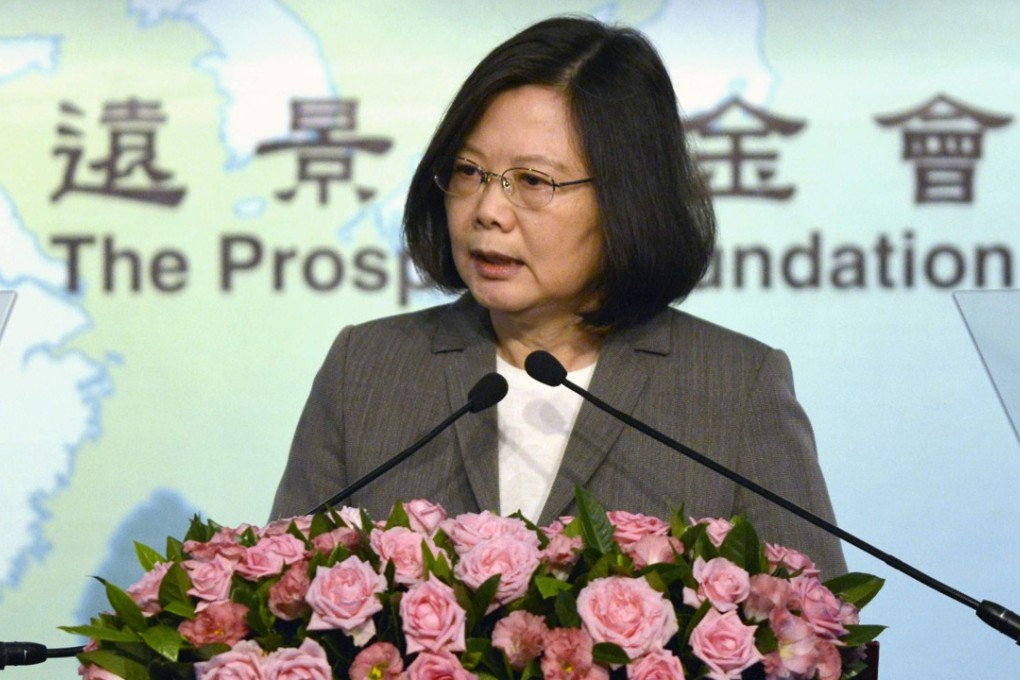Tsai seeks ‘new model for interaction’ to end deadlock with Beijing
Analyst says Taipei is hoping for opportunity to improve relations after the Communist Party reshuffle in autumn

Taiwanese President Tsai Ing-wen appears to be searching for a way to end the year-long impasse since Beijing suspended official contact with the island in June last year.
One analyst said Taipei was hoping the situation would change after the Communist Party holds its 19th national congress in autumn, a key leadership reshuffle that will mean new people to work with from the Beijing side on cross-strait relations.
“Tsai’s reiteration that her government is devoted to maintaining the cross-strait status quo and her call for the two sides to find a new model for interaction are positive signs,” said Tung Li-wen, a researcher with Taiwan Thinktank. “It shows that she is still hopeful for an improvement in relations under Xi Jinping and doesn’t want cross-strait ties to deteriorate further.”
He was referring to previous government remarks that the island had been forced to revise its cross-strait policy after Taipei’s long-time ally Panama switched official recognition to the mainland in June. Taipei said the change was a result of Beijing’s political and economic maneouvring, as was also the case in December when it lost another ally, Sao Tome and Principe.
Speaking at the closed-door Asia-Pacific Security Dialogue on Tuesday, Tsai said she would not change the cross-strait status quo and appealed for the mainland to consider a new model for cross-strait interaction that could benefit the stability and prosperity of both sides and the region as a whole.